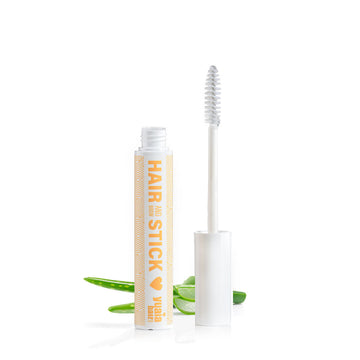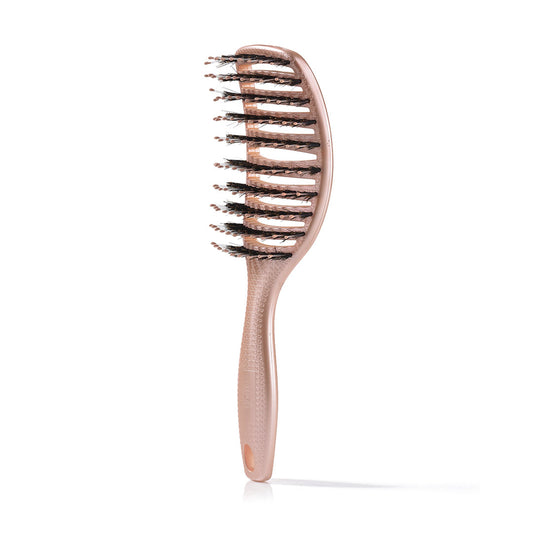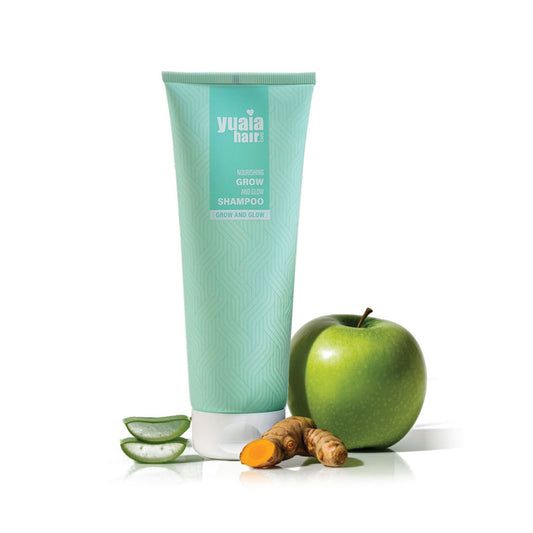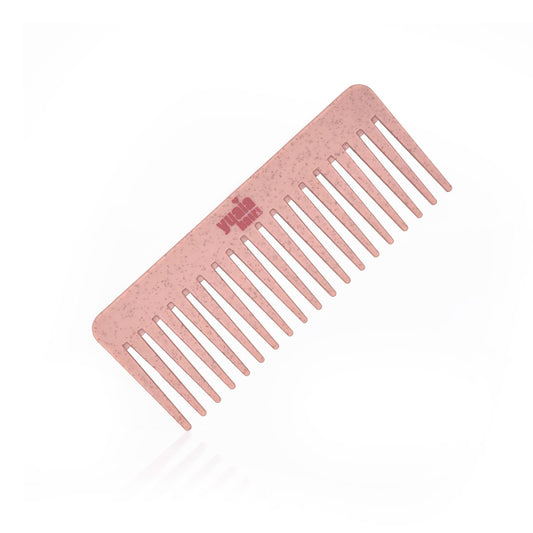
How to treat flaky scalp naturally: Discover effective remedies with natural oils and aloe vera

by Nanna Bundgaard | 09. November 2025 | Reading time: 5 minutes
Read more about the authorDealing with a flaky scalp can be both uncomfortable and embarrassing. Common symptoms include persistent itching, redness, and noticeable flakes that can fall onto your clothing. While these symptoms may seem daunting, natural remedies offer a gentle and effective way to address scalp issues without resorting to harsh chemicals.
Natural remedies have gained popularity for their ability to soothe and nourish the scalp, thanks to their rich, organic ingredients. These solutions not only target the root causes of flakiness but also promote overall scalp health. Among the most effective natural treatments are oils and aloe vera, each offering unique benefits for calming and revitalizing the scalp.
What is a flaky scalp?
A flaky scalp can result from several underlying causes, including dry skin, dandruff, and seborrheic dermatitis. Environmental factors such as cold weather and low humidity can exacerbate these conditions, leading to increased dryness and flakiness. Additionally, certain hair care routines, such as using harsh shampoos or over-washing, can strip the scalp of its natural oils, contributing to the problem.
Natural oils for flaky scalp relief
- Coconut oil: Known for its moisturizing, antifungal, and antibacterial properties, coconut oil is a powerful ally in combating flaky scalp. To use, warm a small amount in your hands and gently massage it into your scalp. Leave it on for at least 30 minutes before rinsing thoroughly. Regular application, about twice a week, can help maintain scalp hydration.
- Tea tree oil: With its antiseptic and antifungal properties, tea tree oil can effectively address dandruff-causing fungus. It's important to dilute the oil with a carrier oil, such as jojoba or olive oil, to prevent irritation. Apply the mixture to your scalp and leave it on for 15-20 minutes before washing it out.
- Jojoba and olive oil: These oils offer quick moisturizing benefits. Jojoba oil mimics the scalp's natural oils, making it an excellent choice for hydration. Olive oil can also be beneficial, but it's best used with caution as it may worsen fungal dandruff in some cases.
Incorporating these natural oils into your hair care routine can significantly improve scalp health. For those interested in enhancing their hair care regimen, our Curvy Brush is an excellent choice for gentle scalp stimulation and even distribution of natural oils.
Aloe vera: A soothing solution
Aloe vera is renowned for its soothing, anti-inflammatory, and hydrating properties, making it an excellent natural remedy for a flaky scalp. Its cooling effect can alleviate itching and redness, while its moisturizing capabilities help maintain scalp hydration. To use aloe vera, apply a generous amount of pure aloe vera gel directly to your scalp. Allow it to sit for about 20-30 minutes before rinsing thoroughly with lukewarm water. For optimal results, incorporate this treatment into your routine two to three times a week.
The role of apple cider vinegar
Apple cider vinegar is another effective natural remedy for treating a flaky scalp. Its antimicrobial properties help combat the yeast and bacteria that can exacerbate flakiness, while its exfoliating action aids in removing dead skin cells. Additionally, apple cider vinegar helps balance the scalp's pH, promoting a healthier environment for hair growth. To create an apple cider vinegar rinse, mix equal parts apple cider vinegar and water. After shampooing, pour the mixture over your scalp, massage gently, and rinse thoroughly. Use this rinse once a week to maintain scalp health.
Additional natural remedies
Besides aloe vera and apple cider vinegar, several other natural ingredients can help alleviate a flaky scalp. Here are a few options to consider:
- Witch hazel: Known for its astringent properties, witch hazel can help reduce inflammation and soothe irritation when applied to the scalp.
- Avocado: Rich in healthy fats and nutrients, mashed avocado can be used as a moisturizing mask to nourish the scalp and reduce flakiness.
- Mashed banana: Bananas are packed with vitamins and minerals that can help moisturize and soften the scalp, making them a great addition to DIY hair masks.
When using these ingredients, simply apply them to the scalp, leave them on for 20-30 minutes, and rinse thoroughly. Regular use can support scalp health and reduce flakiness over time.
How to incorporate natural remedies into your hair care routine
Integrating natural remedies into your hair care routine is a straightforward process that can yield significant benefits for your scalp. Start by selecting one or two remedies that best suit your needs and incorporate them into your weekly routine. For instance, you might use coconut oil as a pre-shampoo treatment twice a week and an apple cider vinegar rinse once a week. Additionally, consider using sulfate-free shampoos and conditioners, such as our Grow and Glow shampoo, to support scalp health without stripping natural oils.
Maintaining a healthy scalp also involves avoiding hot water during washing and gently massaging the scalp to boost circulation. Using our wide-toothed comb can help detangle hair without causing further irritation to the scalp.
Get a 10% discount code sent to you
Receive the best tips and tricks for your hair from Lotte and Nanna 🥰
Common questions about flaky scalp remedies
Can natural remedies completely cure flaky scalp?
Natural remedies can significantly alleviate symptoms of a flaky scalp by addressing dryness, irritation, and inflammation. However, they may not completely cure underlying conditions such as seborrheic dermatitis or psoriasis. For persistent or severe cases, consulting a dermatologist is advisable.
How often should natural oils be used for best results?
The frequency of using natural oils can vary based on individual needs and scalp conditions. Generally, applying oils like coconut or jojoba oil twice a week can help maintain hydration and reduce flakiness. It's important to monitor how your scalp responds and adjust usage accordingly.
What are the signs that I should see a dermatologist?
If you experience severe itching, redness, or persistent flakiness that doesn't improve with natural remedies, it may be time to consult a dermatologist. Additionally, if you notice any signs of infection or significant hair loss, seeking professional guidance is recommended to determine the underlying cause and appropriate treatment.
Get a 10% discount code sent to you
Receive the best tips and tricks for your hair from Lotte and Nanna 🥰
 2-4 day UK delivery
2-4 day UK delivery
 25.000+ satisfied customers
25.000+ satisfied customers
 Satisfaction Guarantee
Satisfaction Guarantee



























